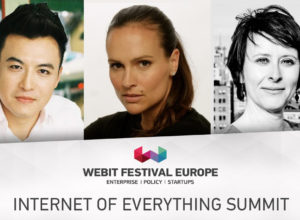Tag: Information
Confidential documents leak threatens consumer trust in smart devices
The huge development of digital technology over the past decade raised the topics of privacy and cyber security as paramount - for corporations and for individuals and even states.
And though many expected that the massive leak of information, like the ones that came from WikiLeaks and Edward Snowden, are provoked by political reasons and will be gone with the Obama administration, we now know that this is not the case.
Just yesterday Julian Asange’s website published the biggest ever leak of secret CIA documents. The confidential files contain details on the tools that American government uses to break into phones, communication apps and other electronic devices.
The leaked documents focus on the techniques for hacking and reveal how CIA worked with British intelligence services to find ways to compromise smart TV’s and turn them into devices for surveillance.
Asange’s revelations will only add to Samsung headaches. The company that was mired in negative headlines for months because of its exploding phones, the suspicion for spying through TV is not the best marketing tool.
According to WikiLeaks the secret program “Weeping Angel” used television’s microphones to pick up and transmit information while the device is switched off.
Meanwhile, Apple announced that the leaked vulnerabilities for its devices are already patched and CIA can’t control our iPhones remotely. Last year the company had a major dispute with the intelligence agency for hacking the phone of the terrorist that killed 14 people and injured 22 in San Bernardino, California.
According to Edward Snowden the leaked documents show, that the US Government is making software vulnerable on purpose by “developing vulnerabilities in US products and intentionally keeping the holes open”.
The famous whistleblower also noted that CIA is not hacking apps like Signal, Telegram and WhatsApp, but the whole iOS and Android operating systems. To learn more on the topic of cyber security and privacy, visit the Security & Privacy Summit within Webit.Festival. During 25th and 26th April 2017 in Sofia top level speakers from all over the world will share their experience in this important field. You can listen to experts like Ulrich Seldeslachts, CEO of LSEC-Leaders In Security, the CTO of Intel Security for EMEA Raj Samani and the Co-Founder of Distil Network Rami Essaid.PSA: This incorrectly implies CIA hacked these apps / encryption. But the docs show iOS/Android are what got hacked - a much bigger problem. https://t.co/Bw9AkBpOdt
— Edward Snowden (@Snowden) March 7, 2017
Take a look at the impact of IoE on our lives...
Tech experts around the world list the Internet of Everything (IoE) as one of the top trends in the digital economy. The term brings together people, processes, data and things to make networked connections more relevant and valuable than ever before and create new opportunities for businesses, individuals and countries.
Expansion of this process is connecting people in more relevant and valuable ways. It helps for converting data into intelligence and making better decisions. IoE delivers the right information to the right person at the right time, while connecting physical devices and objects to the internet.
Many new technologies will enable a wider range of IoE services and some of them will also pose interesting challenges for implementation.
The upcoming 5G tech is intended to enable network operators to evolve their current business models to support a wider variety of relationships with partners and customers in the IoE.
Meanwhile network functions virtualization and cloud technologies have the potential to radically change communications and office environments from physical world to reality where everything is software-based and easy to change.
At this year’s Webit.Festival you can listen to some of the top experts in this innovative field of digital industry. During the IoE Summit they will share their thoughts on the development of IoT, Smart Homes, M2M, Wearables, Education Tech and Virtual and Augmented Reality.
The CEO of Amyx+ Scott Amyx will show how to successfully execute in IoT and how to turn disruption into innovation. The expert is winner of the Cloud & DevOps World Innovation award and was voted among the top IoT Influencers & Experts by Inc. Magazine.
Right after him, the CEO of Elemental Machines Sridhar Iyengar will show us how IoT is helping solve the complex world of science and will explain why smart devices are still not a part of every research laboratory.
The Global Editorial Director of Wall Street Journal Custom Studios Fara Warner will speak on the best ways to tell a story in the world of virtual and augmented reality from media’s point of view.
Josh Software’s Co-founder Gautam Rege will share his thoughts on the future of smart homes, where everything happens at the touch of a button and how it will affect our quality of life.
The CEO of TechHuddle Richard Yeo will talk about the current state of ecommerce and will give his predictions for the future of IoE.
Meanwhile, the Vice President of SCA for Digital Transformation Gael De Talhouet will tell the audience about the rise of IoT and subscription models and the automation of purchases.
Here you can see a full list of the confirmed speakers at Webit.Festival, while here you can get all the information you need about the tickets for the event.
Big Data analytics is the next frontier for digital knowledge
After a landmark year, in which companies worldwide began to analyze databases of all forms and sizes we can expect systems supporting large volumes of structured and unstructured information to continue rising.
We know well that there is huge amount of valuable information in the corporate world, but there are few companies that are using its full potential. The data that your company already owns can show you a lot about the way your customers are thinking, what do they want and what they are thinking about your brand.
Market already demands platforms and services for data management and security. In the same time we are going to see a lot of tools, that empowers users to analyze that data.
Today Big Data is not something, that only enterprise use. In fact it is a game changer for every industry and is even messing in the political life. As Vice’s Motherboard reported, data analysis from social media is among the key factors for the victory of Donald Trump in the USA presidential elections.
Psychologist Michal Kosinski developed a method to analyze people based on their Facebook activity. Five years ago he proved that it is possible to predict user’s skin colour, sexual orientation, political affiliation, intelligence, religion and even alcohol use on the basis of just 68 “likes” in the social media.
This type of analytics can bring enormous benefits for the business because it can be used not only for creation of psychological profiles, but also for searching them around the web.
Expert believe that in 2017 many small and midsize companies will form strategies for taking more of their applications to the cloud and out of the data centers. This will save them costs of investment in equipment and will lead them towards subscribing to services.
Moving data analytics to the cloud will accelerate the process of turning your data into action.
Big Data will help businesses to precisely predict future behaviors and events and improve their profits. This will be a key factor for minimizing revenue risk exposure and improving of operational effectiveness.
If you want to keep up with the hottest trends in the world of data usage and analytics Webit.Festival is the right place for you. During the Big Data & Cloud Summit, you can listen to top level speakers such as the VP for Cloud and Mobile Technology Strategy at IBM Jonas Jacobi and the CTO of Intel Security for EMEA region Raj Samani.
Finding the right balance between privacy and security online
The era of omnipresent Internet is said to bring 24 billion IoT devices, as well as $1 trillion spent on cyber security from 2017 to 2021.
As we take a look at what happens in the global landscape, we can clearly see that what matters the most, is information. What is the most expensive, and not just in terms of business, is data. It’s no surprise, then, that preventing the stealth and uncontrolled usage of those plays uprising role in the era.
Experts predict that this year we will see huge leaps in terms of cyber security. Within the next years, companies will more and more rely on software solutions, ensuring automation of privacy. Also, business decisions will be more informed and backed on freely accessible, but accurate and protected data. Realizing the importance of data protection, global regulatory bodies promised a new privacy regulation to be developed and implemented in 2017, too.
The world may spend undisclosed amount of money on things that just don’t matter, but cyber security isn’t one in that row. And while business solutions are much more expertise and any other sources requiring, individual decisions are much easier to start with. If you could be your own cyber security advisor, what would you do to make secure yourself, as an individual first?
Basic rules you could follow to make sure you’re cyber-protected, are to use different email accounts for usual communication and for sensitive information, to not click on any flashing links of suspicious emails in your inbox, to choose wisely the passwords you use, to make sure the kids use different computer to download games, to watch out what you download and open on your smartphone.
When talking about cyber security, a key fact we all need to understand sooner or later, is that personal data is the price we pay for enjoying a huge amount of internet and mobile features. Underestimating its value and giving it away, knowingly or not, is definitely not the best thing you can do for yourself.
Would you let this app to access your location, files, Wi-Fi connection and calls log? To access this website, you should first read and accept the terms and conditions. We know you want to keep it, but would you share your privacy with us by just clicking here?
This is a small part of the questions you’ll be asked in order to register on a website or a mobile app. And most of us would instantly respond “Yes” without even reading. The privacy policies of the websites explain how gathered data will be used - selling, targeting, development of new tools and apps. But truth is, no one reads them carefully, as the websites usually want us to do.
In our connected world, conscientious and strategic steps to ensure cyber security are needed both by customers and by businesses. While for most of the companies IT departments were in charge of it so far, cyber security is a matter of business, not of IT solutions.
To learn more on the topic of cyber security and privacy, visit the Security & Privacy Summit within Webit.Festival Europe. During 25 and 26th April 2017 in Sofia top level speakers from all over the world will share their experience. You can listen to Ulrich Seldeslachts, CEO of LSEC-Leaders In Security; Raj Samani, CTO EMEA of Intel Security and Rami Essaid, Co-Founder of Distil Network.
To evolve, the business must pass through digital transformation
The Theory of Evolution’s author Charles Darwin once said that it is not the strongest of species that survives, nor the most intelligent, but the one that is the most adaptable to change. And more than any other aspect of human society, these words are relevant to the world of business, especially in the years of the next industrial revolution.
The new economic environment in the information age is putting additional pressure for businesses to change, while the new players on the market are disrupting whole industries.
J.P. Morgan’s CEO Jamie Dimon thinks that all the major banks are endangered by the Silicon Valley. And if they don’t manage to up their game, the tech companies will take over their business.
Right now there are hundreds of startups with ideas and money for creating alternatives to traditional banking. And if the banks don’t act quick with the digital transformation of their services, they can be overtaken by the emerging tech companies.
According to Cisco System’s Executive Chairman, John Chambers, at least 40% of all businesses will die in the next 10 years, if they don’t figure out how to change their entire company to accommodate new technologies. This forecast includes even the companies in Fortune’s 500. Many experts expect that between 40% and 60% of them will not be on the list by the middle of the next decade.
The process of digital transformation quickly became mandatory for anyone, who wants to survive the changes. We can see examples of that everywhere, and even industry’s biggest are trying to adapt to this next generation of computing.
For most of the businesses this transformation end up with simple solutions, like using automated software for the processes, that were previously manually-driven. But there is much more. For retail and financial institutions the new technology gives the opportunity of omni-channel programmes for selling products and services in new ways, while adding more analytics.
All this helps for finding new paths to the customer, and in the digital age importance of his experience is growing rapidly. Customers are more cautious than ever and are ready to turn their back on any brand that don’t align with their values and needs.
Innovation and agility are the best ways to stay competitive in evolving market, and this needs constant assessment, testing and analysis of new technological solutions.
But to know the most effective practices of digital transformation, you most certainly must learn from the best. This year Webit.Festival is the place, where you can meet policy makers, innovators, entrepreneurs, investors, scientists and experts fascinated by technology and fostering the digital transformation in the business and the society.
During the two-day agenda of the event you can listen to top level speakers like
the CEO of JetPack Aviation David Mayman and the VP Digital Transformation at SCA Gael De Talhouet.




